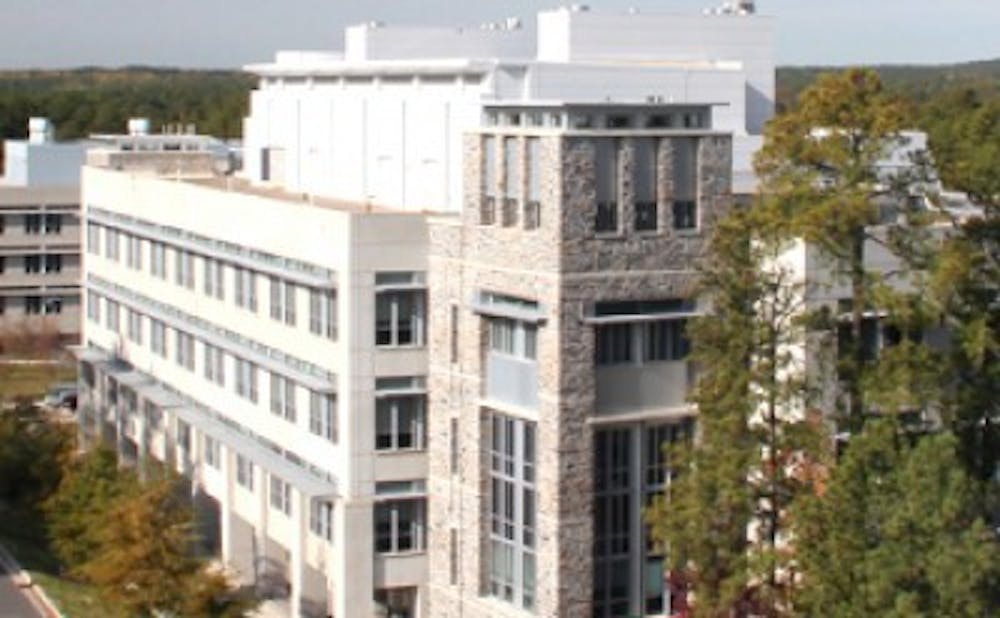Duke scientists are working on a vaccine that has the potential to prevent future pandemics—and they were just awarded a grant to help them with that goal.
The Duke Human Vaccine Institute will receive $17.5 million over three years from the National Institute of Allergy and Infectious Diseases for their pan-coronavirus vaccine project.
"It's super exciting that we can potentially create something that would prevent the last pandemic, that would prevent what we've all gone through for the last year and a half," said Kevin Wiehe, assistant professor in medicine at the School of Medicine and member of the DHVI.
The DHVI announced this summer that they had created a vaccine that was protective against SARS-CoV-2—the virus that causes COVID-19—and its variants. Coronaviruses, which all have a zoonotic origin from bats, mice or domestic animals, have resulted in three outbreaks in the past two decades.
“Now is the time to plan for the next coronavirus pandemic or outbreak. We’ve had two major outbreaks before COVID-19: one in 2003, the [Severe Acute Respiratory Syndrome] outbreak, and one in 2011, the [Middle East Respiratory Syndrome] outbreak,” said Barton Haynes, director of the DHVI and Frederic M. Hanes distinguished professor of medicine, in a May 17 COVID-19 media briefing.
The grant will enable DHVI researchers, in collaboration with scientists from the University of North Carolina-Chapel Hill, the Los Alamos National Laboratory, the University of Pennsylvania and Beth Israel Deaconess Medical Center to work on the development of a vaccine that will protect against the MERS-type coronavirus variants.
"We want to try to apply the same techniques that we applied with the SARS family to this MERS family," Wiehe said.
The SARS vaccine is protein-based, which means that it presents multiple copies of a strategically selected small piece of the virus to the immune system, allowing the immune system to focus its response against that small piece. If successful, this immune response will prevent the virus from binding to cells and infecting them.
Wiehe explained that DHVI scientists believe that the receptor binding-domain of MERS-type viruses are so different from those of the SARS family that the current vaccine will not work.
"We think we're going to potentially need something that uses the same kind of techniques,” Wiehe said. “But it has to just be a different protein.”
DVHI has been trying to create an HIV vaccine for decades now, Wiehe said. While that project has been met with many roadblocks, the research has proven very useful in the development of a pan-coronavirus vaccine.
"We've been working on the HIV vaccine for 40 years, and it's been very very tough going. So it's been great to see the ability to make a SARS vaccine in a year; it's super exciting," Wiehe said.
Now that DHVI has received the grant, the first push of the project will be to find antibodies that target spots that are similar across multiple virus variants. The next step will then be to figure out how to "present those specific spots to the immune system with a vaccine," Wiehe explained. Next, the proteins will need to be manufactured.
Once those steps are complete, the vaccine will be tested first in animals and then in humans, according to Wiehe.
The NIAID also issued awards to Brigham and Women’s Hospital, a teaching hospital of Harvard Medical School, and the University of Wisconsin to work on the development of a pan-coronavirus vaccine. Wiehe said that the three groups are not currently in collaboration.
Get The Chronicle straight to your inbox
Signup for our weekly newsletter. Cancel at any time.

Anna Zolotor is a Trinity senior and recruitment chair for The Chronicle's 118th volume. She was previously news editor for Volume 117.

